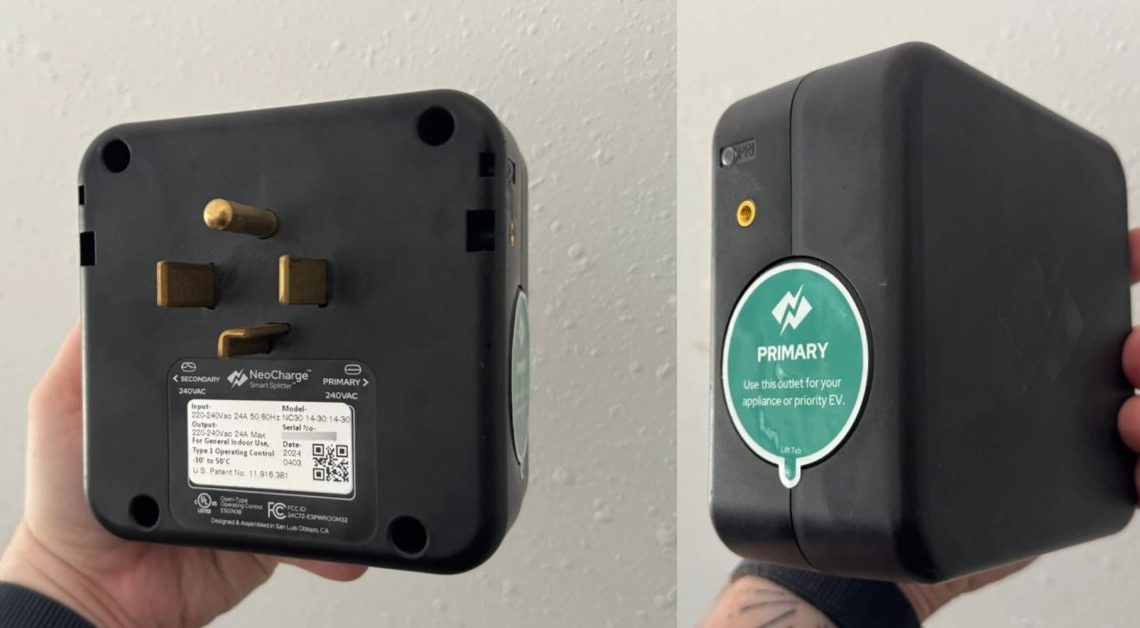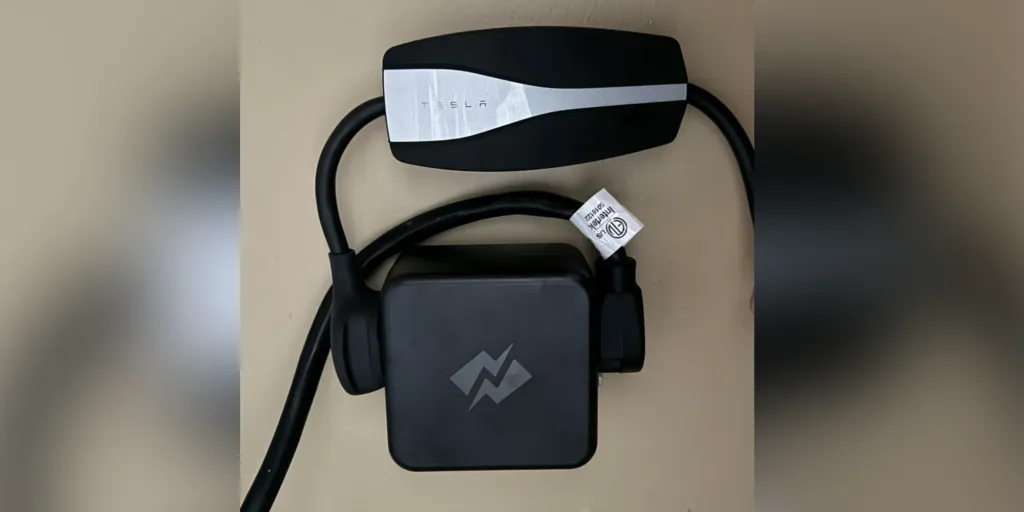
Part of positive EV ownership is having a convenient home charging solution. While public charging stations are great for travel, home charging is both a time and cost savings. The NeoCharge Smart Splitter has been key for making home EV charging smooth for me.
Adding a second 240V outlet to my house as a renter is a tall order. Continually swapping the dryer plug and mobile charging plug is inconvenient and ill-advised. The Smart Splitter solves both those problems easily and affordably.
EV charging experience
EV charging has been a learning process for me. I just assumed relying on the local Supercharger would work for me, but super-fast charging speeds come with a higher price tag. EV charging with a 120V outlet can be a multi-day experience.
The realization that home charging could work came when I unplugged my dryer and used the 240V outlet for the Tesla Mobile Connector. (Previously, my only EV home charging experience was with an electric motorcycle with no Level 2 charging.)
Swapping problems
Problem solved, right? Sort of. It only took a few plug swaps to realize that I had really just created a new problem.
For starters, flipping the breaker off first is a best practice when swapping 240V appliances. Furthermore, regularly swapping plugs risks wearing out the 240V outlet altogether, defeating the purpose of avoiding electrical work.
More pressing, though, was the utter inconvenience of plugging in an upside down four-prong connector in a hard-to-reach dark space repeatedly.
Smart Splitter
That’s where the NeoCharge Smart Splitter comes in.
I flipped off the breaker. Installed the Smart Splitter to the wall outlet. Plugged my dryer into the primary-labeled Smart Splitter outlet. Connected the Tesla charger to the secondary Smart Splitter outlet. And flipped the breaker back on.
That was a few weeks ago, and I haven’t needed to swap plugs since.
The way it works is simple. If the dryer is running, the dryer gets power. If the dryer isn’t running, the Tesla charger can get power.
Easy enough, but how graceful does it handle the job? It really is set it and forget it.
At this point, I rarely think about the NeoCharge Smart Splitter being behind my dryer. Everything just works when I need it to.
Not entirely magic
Of course, the one thing it can’t do is actually double 240V output for simultaneous outlet usage. Blame science. In my experience, however, I’ve only had to think about this once. After that, the NeoCharge Smart Splitter completely earned my trust.
This occurred when I was using the Tesla charger and moved clothes from the washing machine to the dryer. When I started the dryer, the Tesla app notified me that charging was interrupted. “Oh, right,” I thought as I realized what happened.
I set a mental note to remember to start the Tesla charger again after the clothes were finished drying. That’s a fair compromise, I figured.
But, of course, no, that’s not how it works.
As soon as the dryer stopped running, the Tesla charger resumed its job. No need to manage anything in either the NeoCharge app or Tesla app.
Affordable, easy, and insightful
That awesome experience makes the NeoCharge Smart Splitter an easy recommendation for EV drivers in similar situations.
Need to avoid the expense and complexity of adding a second 240V outlet to your house? If your dryer is already located in or near your garage or parking spot, the NeoCharge Smart Splitter is a painless and affordable fix.
Similarly, you can use the NeoCharge Smart Splitter to manage charging two EVs from a single 240V outlet. I didn’t test this use case, but the same rules apply. The primary-labeled outlet will take priority, and the secondary-labeled outlet will kick in when the other outlet stops pulling power.
NeoCharge also provides a mobile app that’s capable of keeping up with energy cost per outlet for added insight.
The standalone NeoCharge Smart Splitter retails for $379 and can be configured for various 240V outlet types. At the time of writing, however, the standalone Smart Splitter goes for $299.
This is a super compelling solution if you have a four-prong 240V outlet. At 24A, you won’t see the same 48A charging speeds as a dedicated Tesla Wall Connector, but it’s a night and day difference from plug swapping or slow charging on a 120V outlet. NeoCharge optionally offers bundles with Tesla adapters or NEMA adapters if needed.

Availability
Learn more from getneocharge.com, or take the compatibility quiz to determine if your home setup is ready for the easy upgrade. Check out the NeoCharge mobile app for iPhone and Android here.
Author: Zac Hall
Source: Electrek




First thing I looked for was the UL Listed logo mark. It’s a bit hard to see, but it’s there. That’s good. With the number of melted outlets I’ve seen, safety is a must!